Feminist Posters
Client
Year
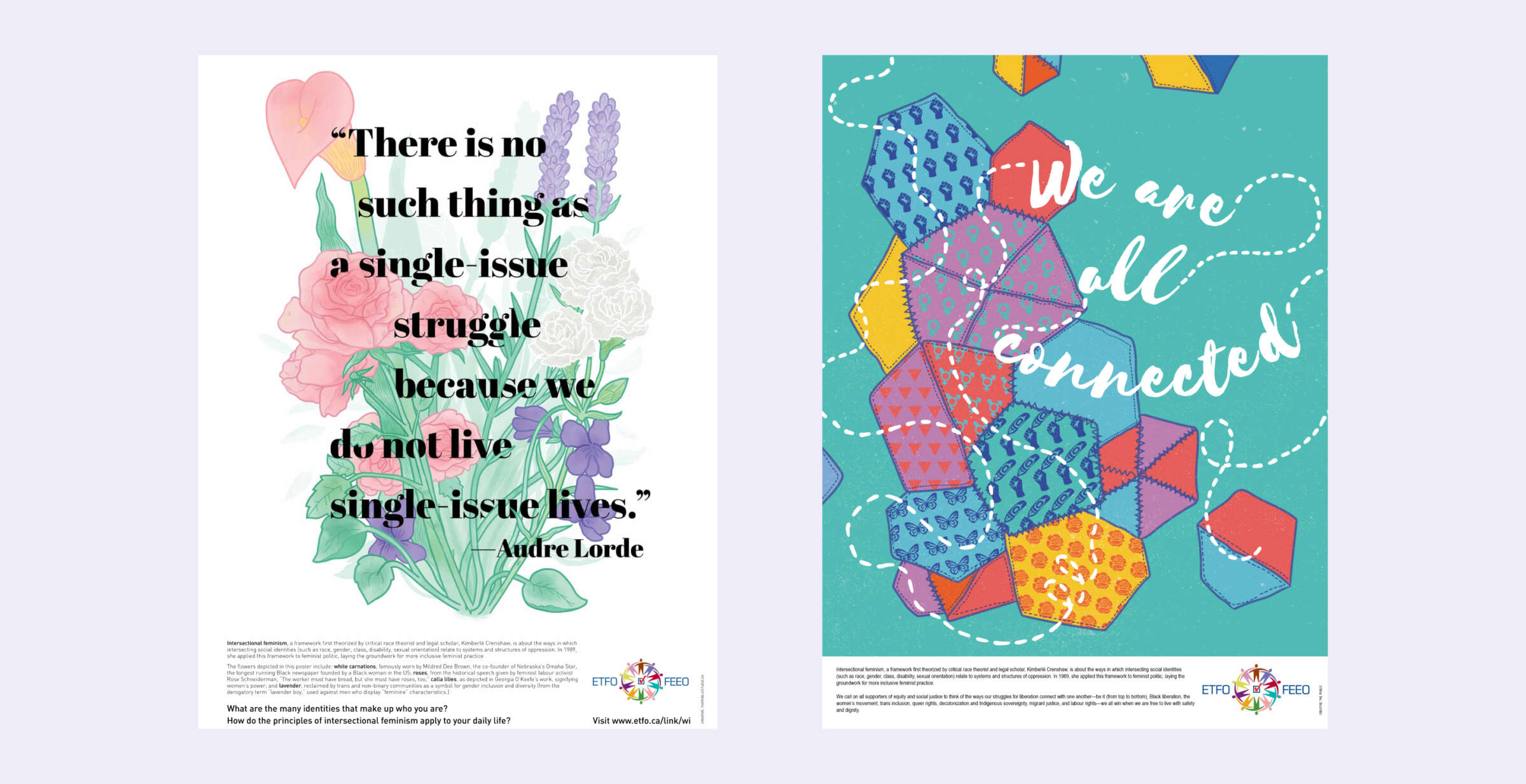
Intersectionality, as defined by legal scholar Dr. Kimberlé Crenshaw was a term used to describe the compounding effects of oppression faced by Black women in the legal system. Since her coining of the term in 1989, it’s been applied vastly, and has become shorthand for an examination of how race, class, gender and other forms of identity interact, overlap, and compound to shape our experiences of oppression in society.
The Need
In 2018, the Elementary Teachers' Federation of Ontario (ETFO) partnered with The Public to produce a poster and collateral materials that would:
- serve as an educational tool to membership on the definition and application of intersectionality
- make a case for an intersectional approach to feminist leadership within ETFO programming
- create an entry point for age-appropriate conversations about intersectional feminism in the classroom
- inspire and uplift members of the ETFO Women’s Program
The Work
Drawing on our vast experience organizing and building capacity within feminist movements in Canada, we proposed positioning intersectionality as a call for person-to-person solidarity; a reminder that power oppresses through many “-isms”:
Resistance in bloom
“There is no such thing as a single-issue struggle, because we do not live single-issue lives.” —Audre Lorde
Living intersectional feminism provides us with an opportunity to root and intertwine a gender-based analysis with race, class, and other struggles.
In this poster concept, we see a centering of Audre Lorde’s famous quote, speaking to the spirit of intersectionality prior to the languaging by Kimberle Crenshaw in 1989. Woven through the quote are a variety of flowers representing different social movements: lilies (feminism), carnations (Black liberation), and roses (labour), etc.
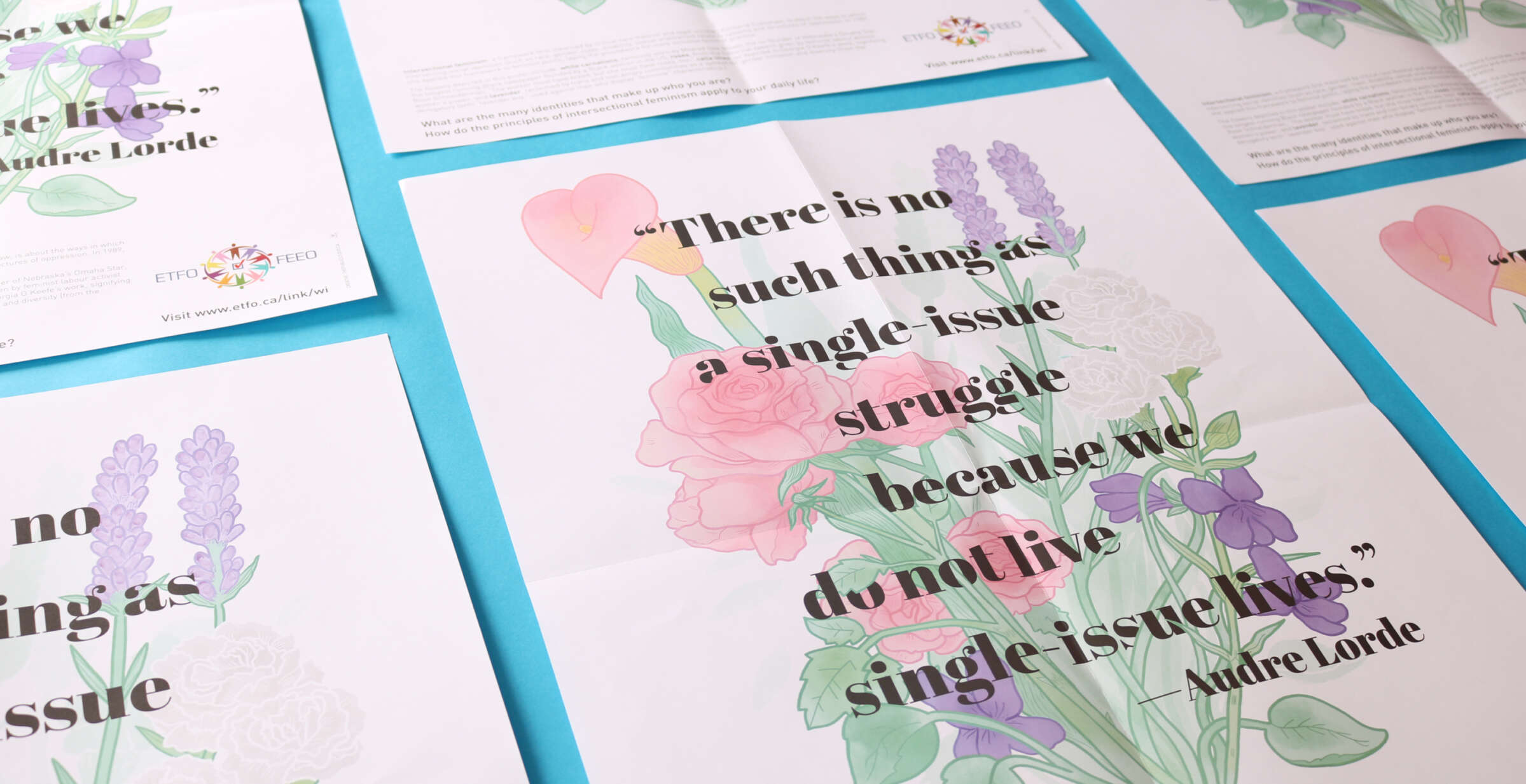
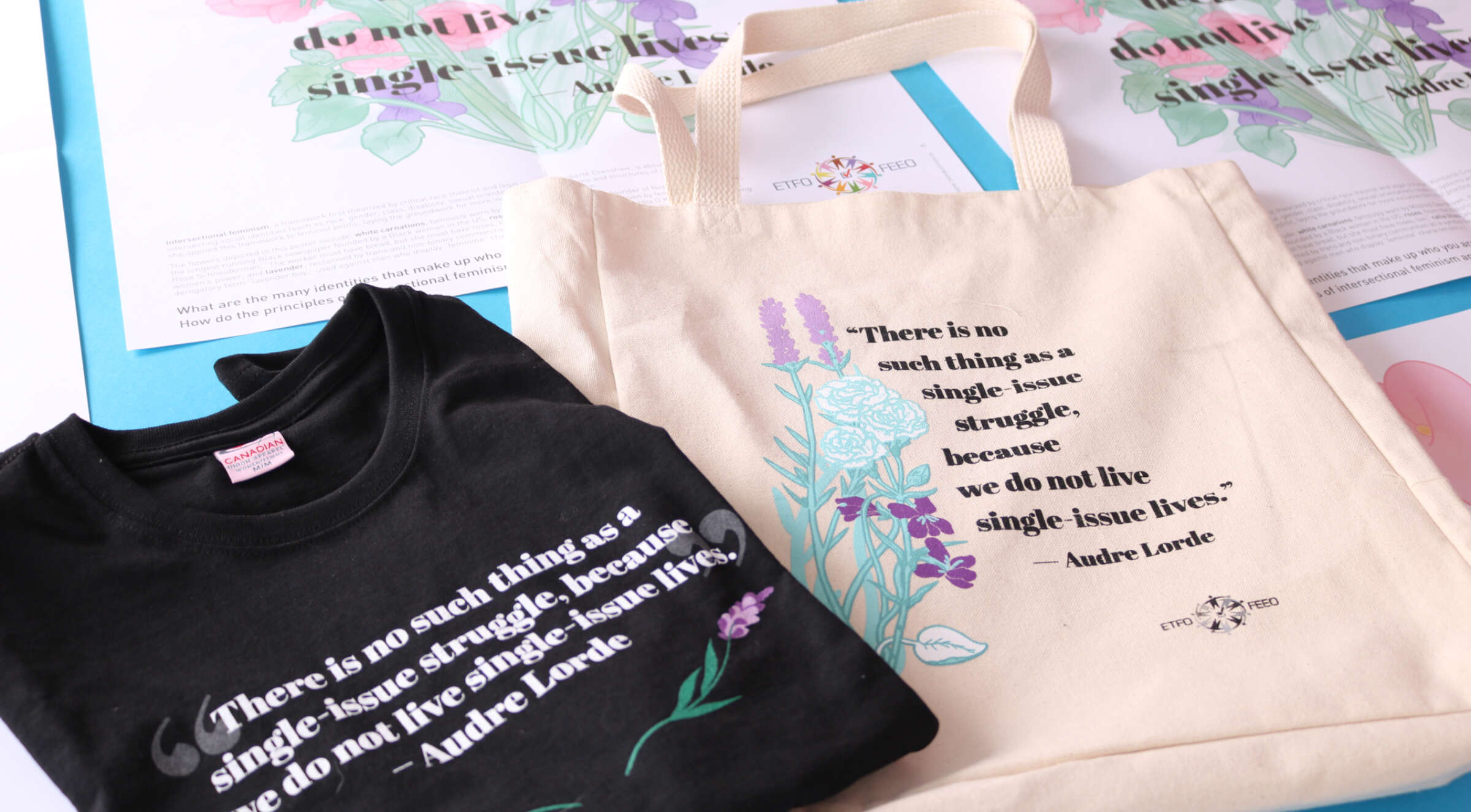
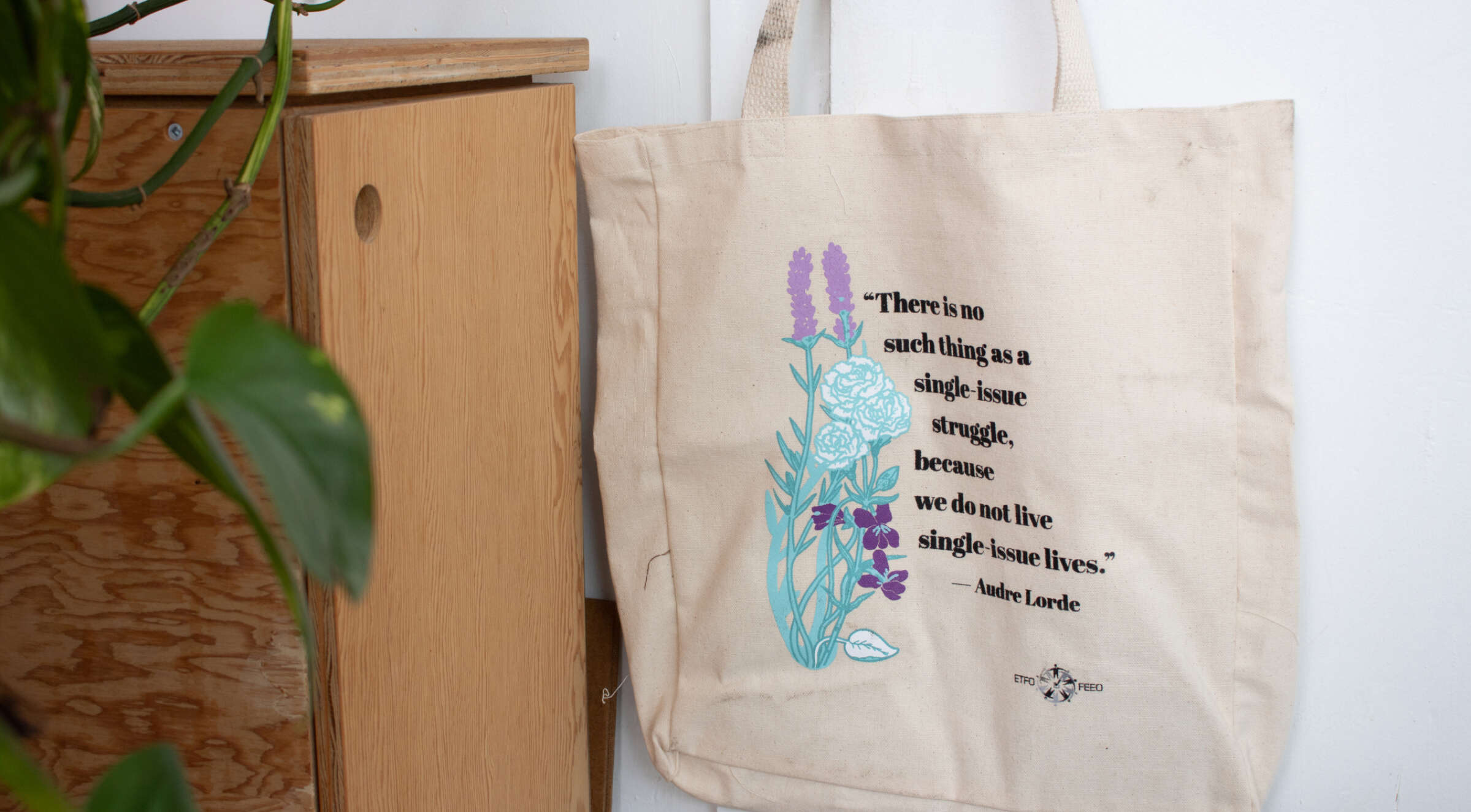
The framing and visual approach pays homage to the many ways Black feminist thought has shaped our understanding of intersectionality. We supplement this powerful quote and image with a note on the historical references for the flowers and a concise definition of intersectionality.
In our creative development, we also proposed a second concept, which ETFO chose to fully develop into a completed poster:
We are all connected
The concept of intersectionality explores how oppressions meet and overlay with one another, and, calls for social movements to honour the complex ways in which our resistance should do the same. There is a sense of connectivity among and between social movements, as many of us experience multiple oppressions and are brought into activism through multiple entry points.
In this poster, we see scraps of patterned fabric sewn together, overlapping and creating new forms. Each pattern represents a different struggle: the women’s movement, queer liberation, Black power, etc. A single thread connects them all, remind us, “we are all connected.”
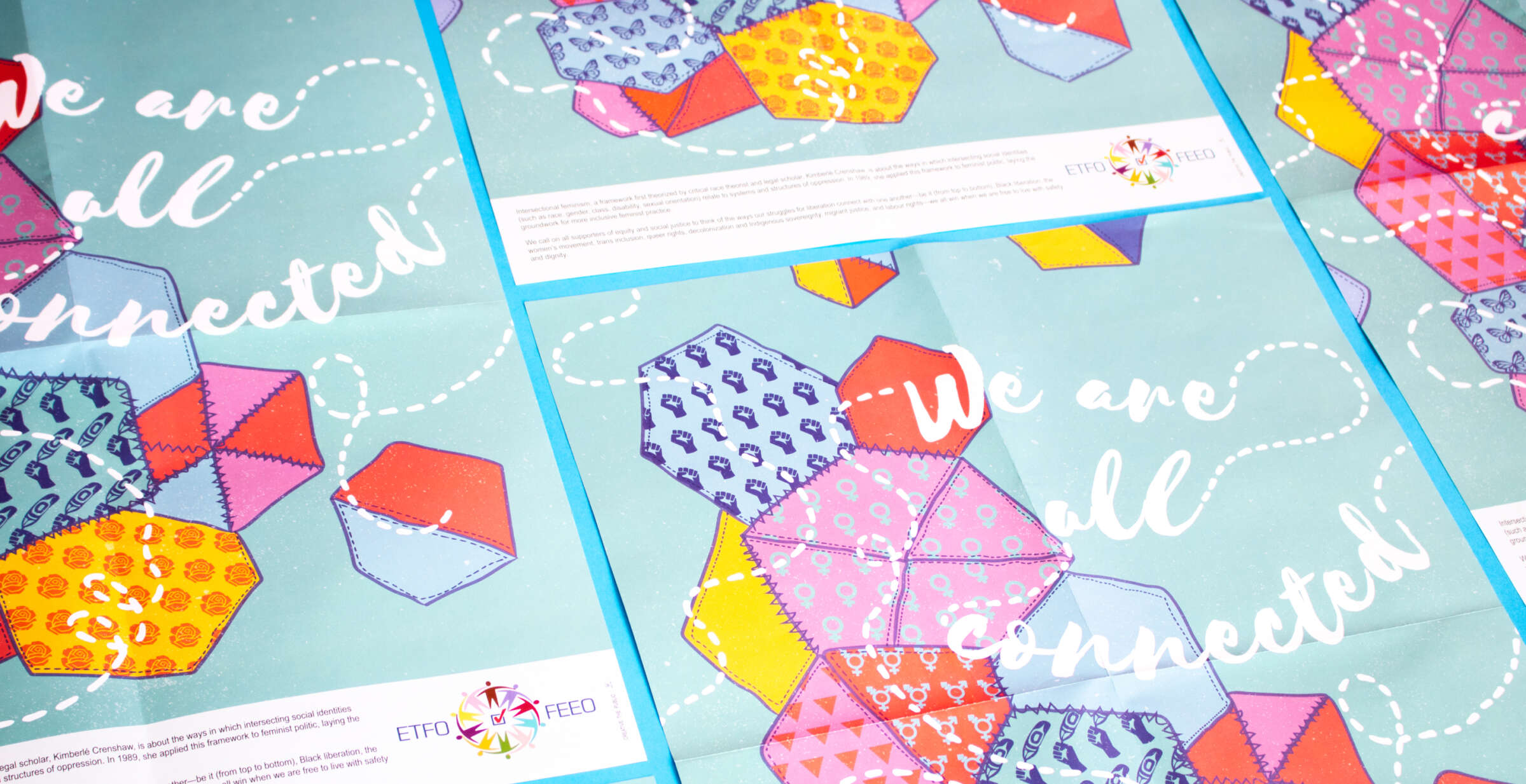
How do you want to change the world and how can we help?
Let’s Connect